Animal Pathology
Veterinary pathologists are veterinarians that specialise in disease diagnosis using animal tissue and bodily fluids. Veterinary pathology is separated into two sections, anatomical pathology and clinical pathology, similar to medical pathology. Veterinary pathologists play a vital role in medication discovery and safety, as well as scientific research, in addition to diagnosing disease in food-producing animals, companion animals, zoo animals, and wildlife. Animal pathologists, often known as veterinary pathologists, work to safeguard the health of cattle, pets, zoo and wild animals, as well as humans. Consumer risks can be detected by animal pathologists researching animals that produce food. Post-mortem examinations are performed by pathologists to determine the cause of death in animals. Veterinary pathologists work alongside veterinarians to figure out what's causing an animal's disease. The identification of a mortality aids research in the prevention of diseases in living animals. Pathologists may work in research to produce vaccines and medicine to treat diseases in both animals and humans.
- Animal Models
- Chemical and Drug Safety
- Diagnostic Investigations of Diseases
- Environmental and Pharmaceutical Hazards
- Experimental Studies
- Genetic Modification of Animals
- Histopathology
- Mechanisms
- Wildlife and Zoo Animal Pathology

Marco Polettini
DVM, Italy
Andreia Freitas
INIAV/REQUIMTE, Portugal
Andreia Freitas
INIAV/REQUIMTE, Portugal
Kedibone Gloria Kgosana
Sefako Makgatho Health Sciences University, South Africa
Nnenna Ugwu
Anglia Ruskin University, United Kingdom
Rubens Dias de Melo Junior
Universidade Federal de Goiás, BrazilSubmit your abstract Today
Important Alert:
X


Title : Analyzing veterinary medicine residues in food: A comprehensive guide
Andreia Freitas, INIAV/REQUIMTE, Portugal
Title : Quantifying changes in facial expression following hot-iron disbudding under procaine hydrochloride and meloxicam treatment in Holstein dairy calves
Nnenna Ugwu, Anglia Ruskin University, United Kingdom
Title : Trypanosoma vivax in and outside cattle blood: Parasitological, molecular, and serological detection, reservoir tissues, histopathological lesions, and vertical transmission evaluation
Rubens Dias de Melo Junior, Universidade Federal de Goiás, Brazil
Title : Characterization of porcine rotaviruses in the Czech Republic
Romana Moutelikova, Veterinary Research Institute, Czech Republic
Title : Determination of Circulating Foot-and-Mouth Disease Virus Serotypes in Kenya (2023)
Hellen Mutua, Foot and Mouth Disease National Reference Laboratories, Kenya
Title : Welfare for Amazonian wild animals
Eliane Cardoso Carvalho Moraes, Jungle Warfare Training Center/ Army, Brazil